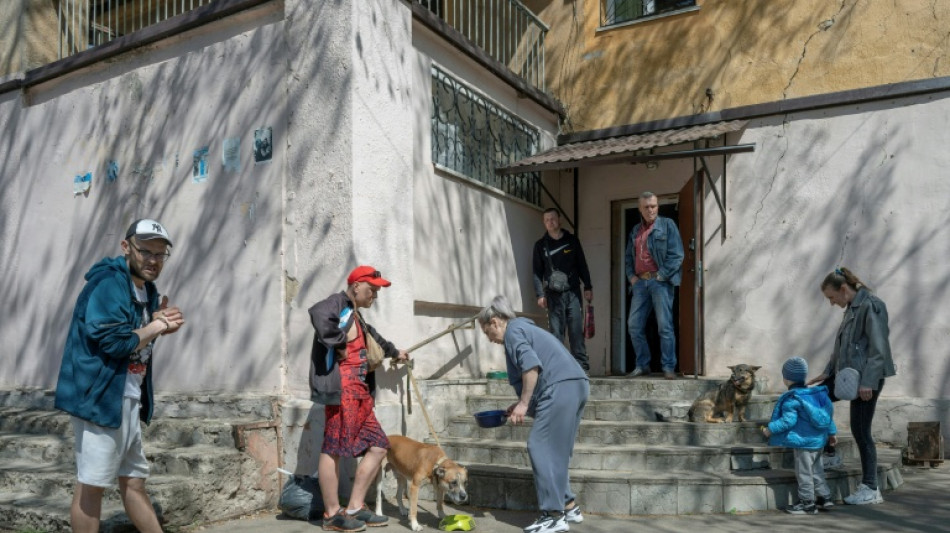
-
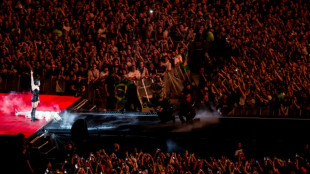 'Two million' throng Lady Gaga concert at Rio's Copacabana
'Two million' throng Lady Gaga concert at Rio's Copacabana
-
India-Pakistan gunfire triggers terror of past conflict
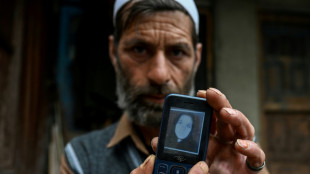
-
 UK hard right sets sights high after local election triumphs
UK hard right sets sights high after local election triumphs
-
Sexual abuse of nuns: one of the Catholic Church's last taboos

-
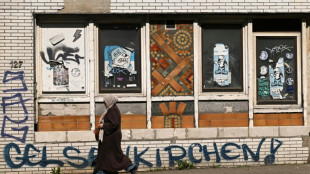 West German foothold of far-right AfD shows challenge for Merz
West German foothold of far-right AfD shows challenge for Merz
-
Maldives president holds record 15-hour press conference
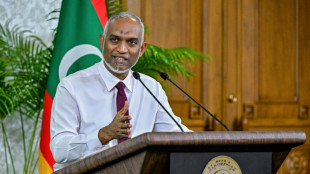
-
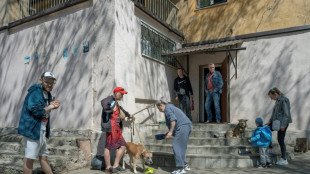 'Accept me': Near Ukraine front, a haven for outcasts
'Accept me': Near Ukraine front, a haven for outcasts
-
Canelo Alvarez unifies super middleweight titles on Saudi Arabia debut

-
 Canelo Alvarez unifes super middleweight titles on Saudi Arabia debut
Canelo Alvarez unifes super middleweight titles on Saudi Arabia debut
-
US Fed expected to pause cuts again and wait for clarity on tariffs
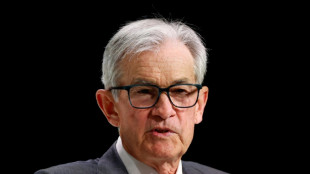
-
 Ex-Liverpool star Firmino 'proud' after more Champions League history
Ex-Liverpool star Firmino 'proud' after more Champions League history
-
Australian PM basks in win, vows 'orderly' government

-
 Qataris hooked on traditional fishing competition
Qataris hooked on traditional fishing competition
-
Mozart chocolate row leaves bitter taste in Austria
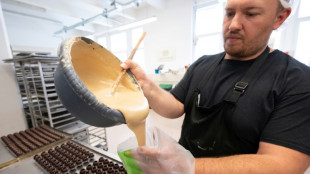
-
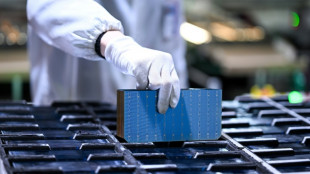 US solar tariffs could drive Asia transition boom
US solar tariffs could drive Asia transition boom
-
Four-try Hurricane Sullivan says revenge fuelled Chiefs upset

-
 Nuggets rout Clippers to advance in NBA playoffs
Nuggets rout Clippers to advance in NBA playoffs
-
Scheffler shines in dark for eight-shot CJ Cup Byron Nelson lead
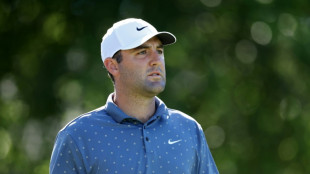
-
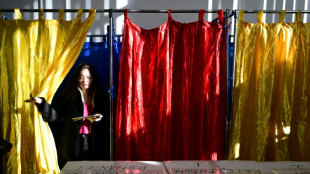 Romania returns to polls after annulled presidential vote
Romania returns to polls after annulled presidential vote
-
Easy vote turns Musk's dreams for Starbase city in Texas into reality

-
 Messi and Miami bounce back with 4-1 crushing of Red Bulls
Messi and Miami bounce back with 4-1 crushing of Red Bulls
-
US researchers seek to legitimize AI mental health care

-
 Ryu clings to two-shot lead at LPGA Black Desert Championship
Ryu clings to two-shot lead at LPGA Black Desert Championship
-
Ledecky, Walsh cap Pro Swim meet with world records

-
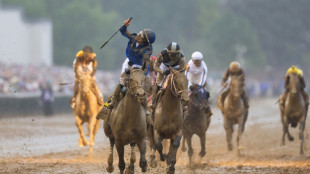 Sovereignty rules in 151st Kentucky Derby
Sovereignty rules in 151st Kentucky Derby
-
McLaughlin-Levrone sets world's fastest of year in 400m hurdles

-
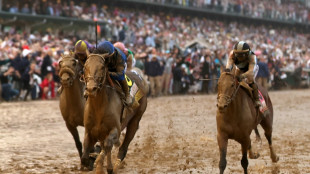 Sovereignty wins 151st Kentucky Derby
Sovereignty wins 151st Kentucky Derby
-
US swim star Ledecky smashes her longstanding 800m freestyle world record

-
 Antonelli's teenage pace impresses Verstappen
Antonelli's teenage pace impresses Verstappen
-
From stronghold guarded by backers, Bolivia ex-leader plots return
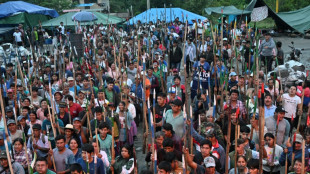
-
 Barca stay on Liga title track with Valladolid comeback
Barca stay on Liga title track with Valladolid comeback
-
Israel calls up tens of thousands of reservists for Gaza offensive

-
 Verstappen takes pole position for Miami Grand Prix
Verstappen takes pole position for Miami Grand Prix
-
Williams beats Trump to set up World Snooker final with Zhao

-
 Warren Buffett to retire from Berkshire Hathaway by year's end
Warren Buffett to retire from Berkshire Hathaway by year's end
-
Barca battle back at Valladolid to preserve Liga title charge

-
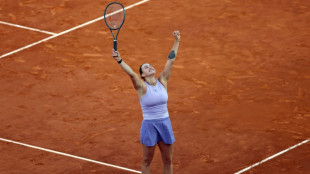 'Like a dream' says dominant Sabalenka after third Madrid title
'Like a dream' says dominant Sabalenka after third Madrid title
-
Napoli move step closer to Serie A crown after win at fiery Lecce

-
 Williams beats Trump to set up World Snooker final with Zhao Xintong
Williams beats Trump to set up World Snooker final with Zhao Xintong
-
Eurovision limbers up with over-60s disco
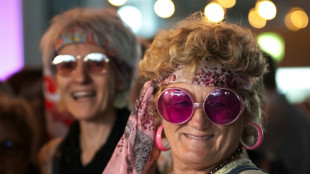
-
 'Surreal' Freeman hat-trick stuns Leinster to take Northampton into Champions Cup final
'Surreal' Freeman hat-trick stuns Leinster to take Northampton into Champions Cup final
-
Huge crowds head to Copacabana for free Lady Gaga concert
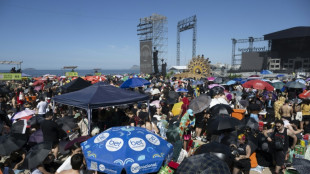
-
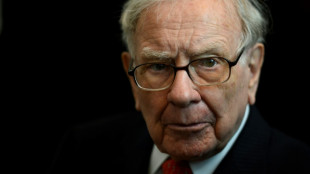 Warren Buffett: billionaire investor with simple tastes
Warren Buffett: billionaire investor with simple tastes
-
Serbian president out of hospital after cutting short US trip
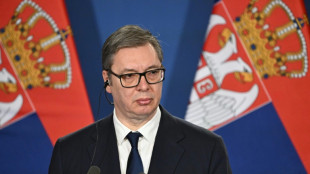
-
 Arsenal rocked by Bournemouth, Villa boost top five bid
Arsenal rocked by Bournemouth, Villa boost top five bid
-
Freeman hat-trick stuns Leinster to take Northampton into Champions Cup final

-
 Warren Buffett says will retire from Berkshire Hathaway by year's end
Warren Buffett says will retire from Berkshire Hathaway by year's end
-
Al Ahli beat Kawasaki Frontale to win Asian Champions League

-
 Shepherd, Dayal edge Bengaluru past Chennai in IPL thriller
Shepherd, Dayal edge Bengaluru past Chennai in IPL thriller
-
Sabalenka beats Gauff to win third Madrid Open crown
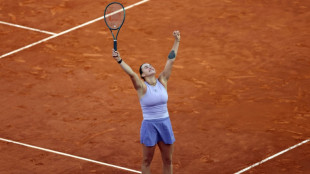

'Accept me': Near Ukraine front, a haven for outcasts
Whenever warm days come to Kramatorsk, near the eastern Ukrainian front, the Svitanok organisation leaves its door wide open, offering advice or a cup of tea to the city's social outcasts.
People living with HIV, those recovering from drug addiction, sex workers -- all are welcome to seek medical guidance and respite from stigma and solace as Russian troops advance toward Kramatorsk.
The refuge they find at Svitanok is vital during the war, when marginalised communities often feel left behind and face heightened insecurity and stigma.
"They support me here, they respect me. I just came to drink some tea. They'll treat me, I know they'll accept me," says Oleg Makaria, who is HIV-positive.
Makaria, who comes to Svitanok most days, hardly reacts to the air raid sirens once again wailing in Kramatorsk, just 20 kilometres (12 miles) from the front.
The 41-year-old jokes that he does not look his age. But he suddenly breaks down thinking about Donetsk, his home city now in Russian hands.
"I understand I can't return to Donetsk anymore. Never in my life. Probably... I'm here alone," he mutters through tears.
Moscow-backed separatists seized parts of the Donetsk region in 2014, a prelude to the Kremlin's full-scale 2022 invasion, which the UNHCR says has displaced nearly 11 million people.
The conflict disrupted treatment -- which needs to be taken daily to control HIV -- to some of the 250,000 Ukrainians estimated by UNAIDS to be living with the infection in 2020.
- 'I didn't break' -
Advances from Russian troops have also threatened drug treatment programmes.
Moscow and its proxies have banned opioid substitution, which replaces dangerous opioids with less harmful substances such as methadone.
Approved by the United Nations and the World Health Organisation, the treatment also reduces HIV transmission as it lowers drug injections.
No one would guess looking at Natalia Zelenina, but the bright social worker sporting a red bob and bright pink lipstick spent five years in Russian custody.
She was carrying legally prescribed drugs for her replacement therapy when she was stopped by Moscow-backed separatists controlling parts of the Donetsk region in 2017.
"I realised how strong I was," the 52-year-old said.
While her colleagues campaigned to get her out, she fought to obtain treatment for her HIV.
"I survived, I endured it all. I went through it all. I didn't break," she said.
After being released to Kyiv-controlled territory in a prisoner exchange, Zelenina returned to Svitanok.
"I knew that I could only recover in a familiar atmosphere," she says.
But even in the protective bubble of Svitanok, where most workers have HIV and a drug dependency, the boom of explosions can be heard in the distance.
One employee told AFP she started consuming "just a little bit" of drugs to alleviate her anxiety –- until her colleagues helped her get clean again.
Iryna Mamalakieva arrives holding her four-year-old son Maksym, who wobbled off at any opportunity to pick dandelions on a patch of grass.
The unemployed 31-year-old former mine operator, diagnosed with HIV in 2019, relies on Svitanok for medical and legal help.
"Some people give up, some hang themselves. I knew people like that: They found out about their diagnosis, and even if they had children, they drank themselves to death and quietly went to hang themselves," she said.
- 'Melancholy in my soul' -
The war has exacerbated stigma towards HIV-positive people and those suffering from drug addictions, counsellor Svitlana Andreieva told AFP.
"The rest of the world that's outside our doors, it tells them that they are nobody, that they're not accepted, they're not respected," she said.
Andreieva herself remembers being kicked out of hospitals and beaten up by the police because she was addicted to drugs and HIV-positive.
Then she learned law, which she shares with visitors who went through similar experiences.
"The next time they don't come with tears," she said. "They say: 'What do I need to do, which law article should I rely on?'"
But Andreieva's patience is often tested.
After an altercation with a regular, she finds a bouquet of lilacs in lieu of apologies in the office.
Hard to win over, she initially shrugs it off.
But Svitanok's workers and beneficiaries face yet another hurdle: cuts in US humanitarian aid.
Svitanok has for now survived Washington's aid freeze, but is scrambling to find alternative sources of funding for some of its many programmes, which partly rely on US money.
The uncertainty "really knocked me out of my stability", Zelenina says.
"There's such a melancholy in my soul, you know? I love my job. I simply can't imagine what I will do tomorrow."
X.Karnes--AMWN